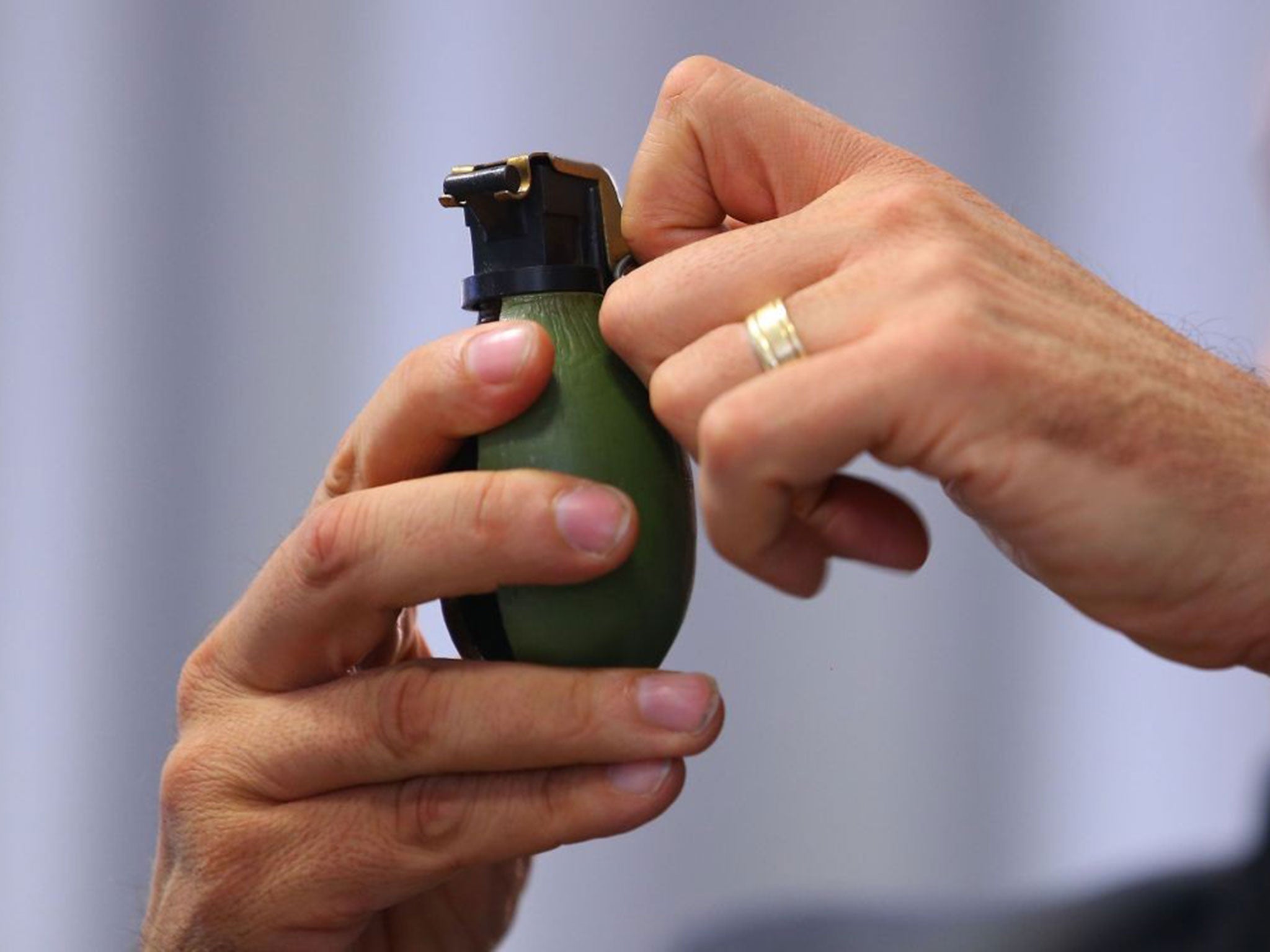Rise in grenades being smuggled into UK prompts fears over terror attacks
Devices that change hands for up to £750 each are coming from former Yugoslavia

Investigators have recorded a sharp rise in the number of grenades seized from criminals trying to smuggle them into the UK.
The increase has led detectives to fear an increase in stashes of unused weapons in criminal hands that could potentially be used in Britain.
The grenades are arriving mostly from the former Yugoslavia, and in the most recent seizures, in Sussex and Scotland, were attached to the bottom of vehicles.
They are generally smuggled by organised crime gangs over land on lorries or trailers that arrive by ferry, according to the National Crime Agency.
Black-market weapons dealers charge up to £750 for a grenade.
Between January and April this year alone, 17 grenades were seized by UK authorities, compared with a previous average of 10 a year.
In the largest haul, Police Scotland recovered six grenades and 1.5kg of dynamite.
Between 2013 and 2017, 40 grenades were discovered as criminals tried to import them.
While the number of grenades coming into the country appears to be on the rise, the number of the devices exploded averaged one a year during that period.
Lynne Owens, director-general of the National Crime Agency, told The Independent the information had come to light in part because her organisation had been proactively targeting illegal sales on the dark web.
"There are different laws in the Western Balkans and more ready availability of weaponry.
"Organised crime groups from that area have significant links into the UK hence our targeting.
"Each case has a different reason for use - in one case it was a specific threat; in others the reason for purchase is less clear."
But the agency did not believe the UK was being specifically targeted, she said.
Chris Farrimond, deputy director of investigations at the agency, added: "If we just work on the figures that we know about, the ones that have been recovered over the past four years and the ones that we know of that have been exploded, then somewhere, somehow in the UK there are a number of grenades that are in criminal hands and have not been used."
The devices were used three times in buildings and once against a vehicle between 2013 and 2017.
"They don't get used very often but where they have, we have fortunately seen them not used in crowded areas, but they've been used quite specifically against either buildings or a vehicles,” said Mr Farrimond.
"Not one of these was actually used against a person. They were used to create fear and or criminal damage. It was almost a warning device."
Drug dealer Dale Cregan, who murdered two policewomen and a father and son in 2012, used grenades as his "calling card" in three of the four cases, throwing grenades at the bodies of his victims after they had been shot.
Mr Farrimond said there were also concerns that the weapons could get into terrorists’ hands.
He said: "The bottom line is that firearms do get offered up for sale, and so then the question is how accessible is that criminal sale area to somebody who wants to create a terrorist offence of some type.
"Of course we have a concern that they could fall into terrorist hands and they could be used in a particular way."
Of the 17 grenades seized so far this year, 12 were military and viable; one was improvised, three were imitation or deactivated, and one was real but not viable.
Agencies contributed to this report.
Subscribe to Independent Premium to bookmark this article
Want to bookmark your favourite articles and stories to read or reference later? Start your Independent Premium subscription today.
